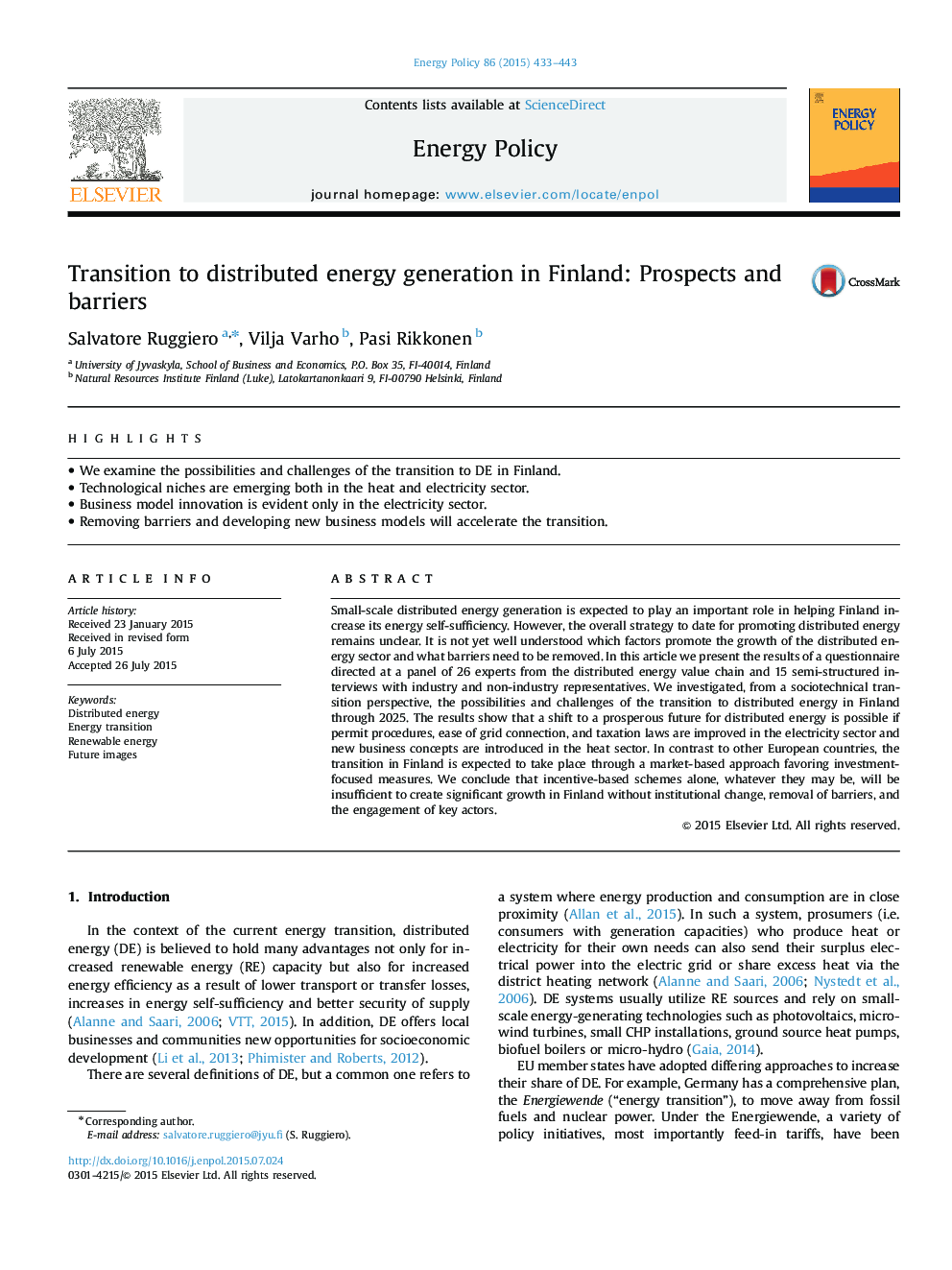| Article ID | Journal | Published Year | Pages | File Type |
|---|---|---|---|---|
| 7400826 | Energy Policy | 2015 | 11 Pages |
Abstract
Small-scale distributed energy generation is expected to play an important role in helping Finland increase its energy self-sufficiency. However, the overall strategy to date for promoting distributed energy remains unclear. It is not yet well understood which factors promote the growth of the distributed energy sector and what barriers need to be removed. In this article we present the results of a questionnaire directed at a panel of 26 experts from the distributed energy value chain and 15 semi-structured interviews with industry and non-industry representatives. We investigated, from a sociotechnical transition perspective, the possibilities and challenges of the transition to distributed energy in Finland through 2025. The results show that a shift to a prosperous future for distributed energy is possible if permit procedures, ease of grid connection, and taxation laws are improved in the electricity sector and new business concepts are introduced in the heat sector. In contrast to other European countries, the transition in Finland is expected to take place through a market-based approach favoring investment-focused measures. We conclude that incentive-based schemes alone, whatever they may be, will be insufficient to create significant growth in Finland without institutional change, removal of barriers, and the engagement of key actors.
Related Topics
Physical Sciences and Engineering
Energy
Energy Engineering and Power Technology
Authors
Salvatore Ruggiero, Vilja Varho, Pasi Rikkonen,
